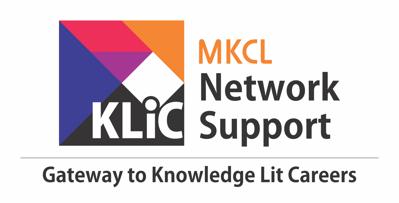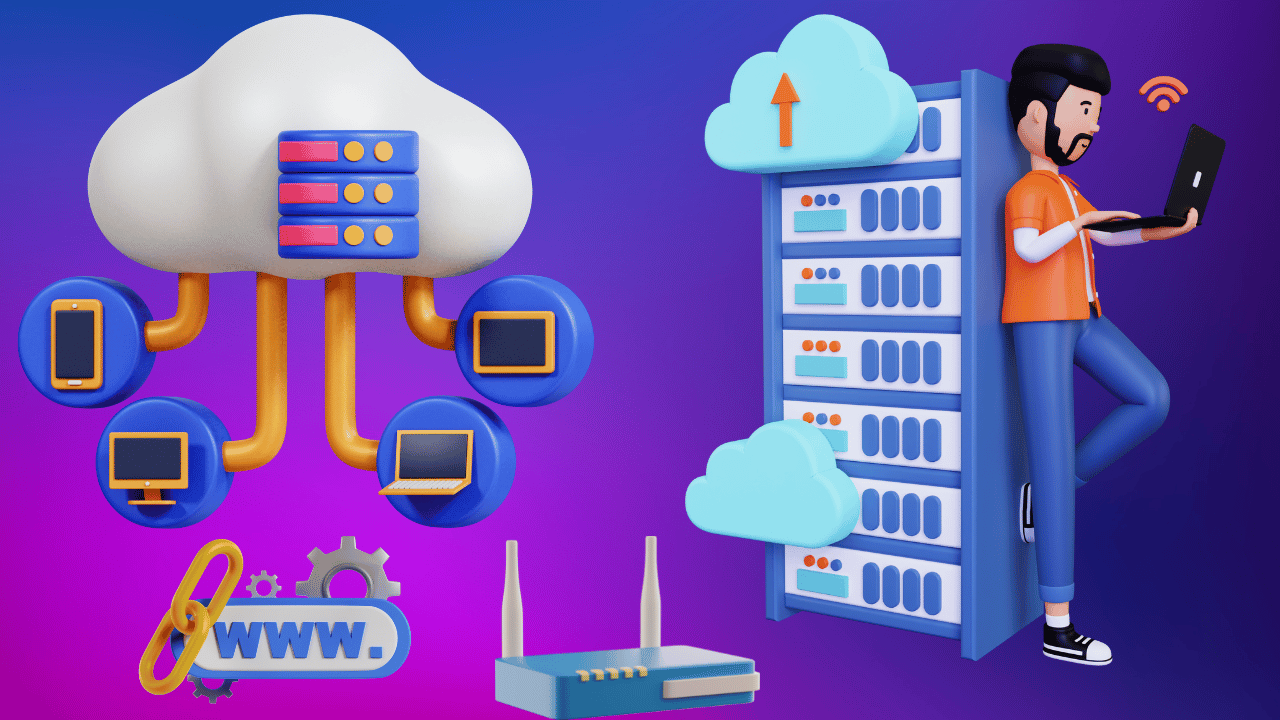- In this course, you will learn:
- Define the foundational concepts of computer networking, including protocols, architectures, and topologies.
- Identify different networking technologies such as LANs, WANs, WLANs, and emerging technologies.
- Recognize networking protocols and standards like TCP/IP, DNS, DHCP, HTTP, OSI model and their roles in data transmission across networks.
- Describe the OSI model and its layered approach to network communication, illustrating how data flows through a network.
- Name various networking devices such as routers, switches, hubs, and explain their functions within a network.

Understanding Computer Networks
Learn the basics of networking, including protocols, topologies, and internet fundamentals.
KLiC Certificate in Understanding Computer Networks
Introduction
What you'll learn ?
- At the end of this course, learners will be able to
- Apply proficiency in configuring basic network settings, including IP addressing, subnet masks, default gateways, and DNS settings, to set up functional network environments.
- Analyze basic concepts of network security, such as authentication, encryption, firewalls, and intrusion detection/prevention systems, to evaluate their effectiveness in safeguarding network resources.
- Evaluate the ability to identify and troubleshoot common networking issues like connectivity problems, slow network performance, and hardware failures, to develop effective solutions and optimize network performance.
- Synthesize networking concepts into real-world scenarios, such as setting up a home or small business network, connecting to the internet, and accessing network resources, to demonstrate comprehensive understanding and application of networking principles.
- Create configurations for routers and switches based on networking requirements and constraints, demonstrating mastery of device configuration techniques and principles.
Syllabus
- Basics of Networking 1
- Basics of networking 2
- Terms in Networking
- Client Server model
- Testimonial of Industry expert
- Local Area Networks (LANs)
- Campus Area Networks (CANs)
- Metropolitan Area Networks (MANs)
- Wide Area Networks (WANs)
- Types of Network
- Networking Devices -2
- Wide Area Networks part 2
- Storage Area Networks (SANs)
- Personal Area Networks (PANs)
- Network devices - 1
- Network devices - 2
- Wireless Range Extenders
- Modems
- SOHO devices
- Firewalls and Load Balancer
- Installing Firewall software
- OSI Model
- Network segmentation 1
- Network segmentation 2
- About security and performance 1
- About security and performance 2
- Network Topology
- TCP/IP model
- Network Protocols part -1
- Network Protocols part -2
- Network Protocols part - 3
- Network Protocols -4
- Network Protocols - 5
- TCP/IP model
- Network Protocols - 6
- Telnet
- Configuring Telnet
- Transmission methods part 1
- Transmission methods part 2
- Protocol data units
- TCP/IP overview 1
- TCP/IP overview 2
- TCP/IP Layers- 1
- TCP/IP Layers - 2
- TCP/IP Layers - 3
- TCP/IP Layers - 4
- Wiring Standards and cable types
- Network Cabling
- Crimping process
- Cable Performance and troubleshooting - Part 1
- Cable Performance and troubleshooting - Part 2
- Understanding Binary Math
- Number systems used in computers
- MAC address structure
- IPv4 address
- IPv4 subnet masks
- IPv6 subnet masks
- Assigning IPv4 addresses
- Assigning IPv6 addresses
- Difference between static and dynamic IP address
- IP addressing security
- Protect and hide IP address
- Proxy server part - 1
- Proxy server part - 2
- Configuring IP address in Windows 10
- Calculating IP subnets and hosts
- Classful subnetting
- Subnetting concepts
- Class A subnets
- Class B subnets
- Class C subnets
- IPV6 Fundamentals-1
- Configuring IPv6 in network
- Planning a network -1
- Planning a network - 2
- Ethernet Standards 1
- Ethernet Standards 2
- Network ports
- How do network ports affect cybersecurity?
- Port scanner utility
- Configuring DHCP in small networks
- What is DNS?
- WINS vs DNS
- Overview of DNS -2
- DNS spoofing and DNS server
- DNS lookup
- DNS Lookup Practical
- Finding DNS part -1
- Finding DNS part -2
- Understanding Switches
- Types of Switches
- Virtual LAN Part 1
- Virtual LAN Part 2
- Layer 3 switches
- Understanding Routers part -1
- Understanding Routers part -2
- Understanding Routers part -3
- Understanding Routers part -4
- Routing Basics- 1
- Routing Basics - 2
- Routing Basics - 3
- Routing Basics - 4
- Routing Basics - 5
- Prioritizing Traffic 1
- Prioritizing Traffic 2
- Network Switching
- Circuit switching
- Message switching
- Packet switching
- Network Security - 1
- Network Security - 2
Certificate
- MKCL provides certificate (for 30/60/90 hours courses) to the KLiC learner after his/her successful course completion.
Academic Approach
The Academic Approach of the course focuses on the “work centric” education i.e. begin with work (and not from a book !), derive knowledge from work and apply that knowledge to make the work more wholesome, useful and delightful. The ultimate objective is to empower the Learner to engage in socially useful and productive work. It aims at leading the learner to his/her rewarding career as well as development of the society.
Learning methodology
- Learners are given an overview of the course and its connection to life and work.
- Learners are then exposed to the specific tool(s) used in the course through the various real-life applications of the tool(s).
- Learners are then acquainted with the careers and the hierarchy of roles they can perform at workplaces after attaining increasing levels of mastery over the tool(s).
- Learners are then acquainted with the architecture of the tool or Tool Map so as to appreciate various parts of the tool, their functions and their inter-relations.
- Learners are then exposed to simple application development methodology by using the tool at the beginner’s level
- Learners then perform the differential skills related to the use of the tool to improve the given ready-made outputs.
- Learners are then engaged in appreciation of real-life case studies developed by the experts.
- Learners are then encouraged to proceed from appreciation to imitation of the experts.
- After imitation experience, they are required to improve the expert’s outputs so that they proceed from mere imitation to emulation.
- Finally, they develop the integral skills involving optimal methods and best practices to produce useful outputs right from scratch, publish them in their ePortfolio and thereby proceed from emulation to self-expression.
Evaluation Pattern
Evaluation Pattern of KLiC Courses consists of 4 Sections as per below table:
| Section No. | Section Name | Total Marks | Minimum Passing Marks |
|---|---|---|---|
| 1 | Learning Progression | 25 | 10 |
| 2 | Internal Assessment | 25 | 10 |
| 3 | Final Online Examination | 50 | 20 |
| Total | 100 | 40 | |
| 4 | SUPWs (Socially Useful and Productive Work in form of Assignments) | 5 Assignments | 2 Assignments to be Completed & Uploaded |
MKCL’s KLiC Certificate will be provided to the learner who will satisfy the below criteria:
- Learners who have successfully completed above mentioned 3 Sections i.e. Section 1, Section 2 and Section 3
- Additionally, learner should have completed Section 4 (i.e. Section 4 will comprise of SUPWs i.e. Socially Useful and Productive Work in form of Assignments)
- Learner has to complete and upload minimum 2 out of 5 Assignments
Courses Fee Structure from 01 July, 2025 Onwards
KLiC 30 hour course fee applicable from 01 July, 2025 all over Maharashtra| KLiC Course Duration | MFO: MKCL Share (Including 18% GST) |
ALC Share (Service Charges to be collected by ALC) |
|---|---|---|
| 30 hours | Rs. 300/- | Rs. 1,500/- |
Important Points:
* Above mentioned fee is applicable for all Modes of KLiC Courses offered at Authorised Learning Center (ALC) and at Satellite Center
* Total fee is including of Course fees, Examination fees and Certification fees
* MKCL reserves the right to modify the Fee anytime without any prior notice
* Above mentioned fee is applicable for all Modes of KLiC Courses offered at Authorised Learning Center (ALC) and at Satellite Center
* Total fee is including of Course fees, Examination fees and Certification fees
* MKCL reserves the right to modify the Fee anytime without any prior notice
